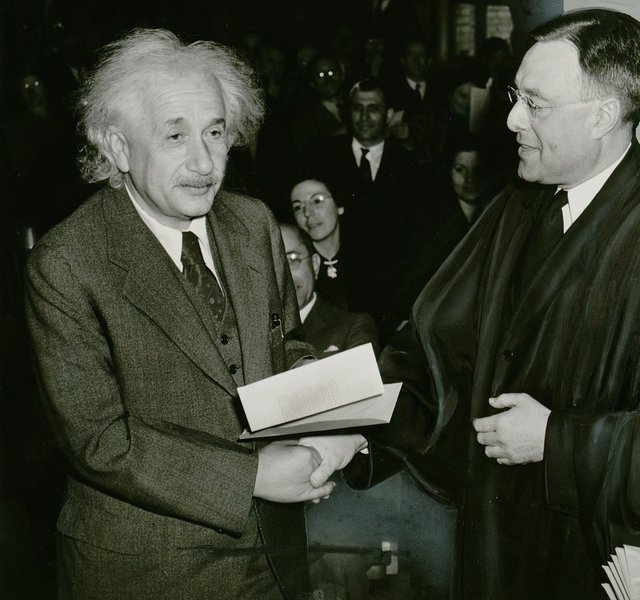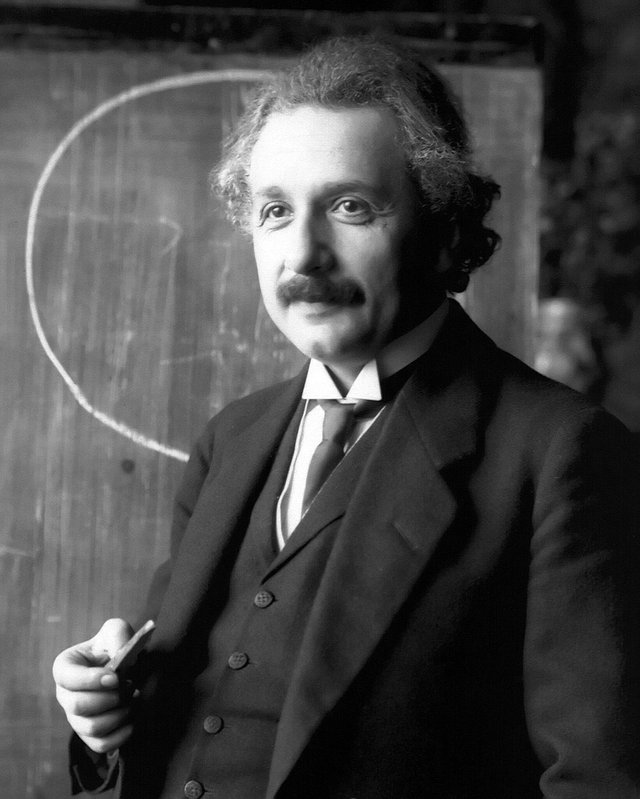What you can learn from Einstein’s quirky habits!
Among the great minds that have passed through history, Albert Einstein is on top of the list. Einstein was one hell of a genius. So what if we explored his 'behavior of a genius 'to try it out for ourselves?

Einstein has taught us how to extract energy from atoms. Perhaps, we can learn from him a thing or two about how to 'use' our brains. I wonder will following his habits of sleep, diet, and fashion help?
10 hours of sleep and two seconds of a nap:
Sleep is good for the brain, and Einstein has taken this advice seriously. It has been reported that he slept for more than 10 hours a day, more than the average American sleep rate (6.8 hours).
But does long-term sleep help increase your intelligence?
The writer John Steinbeck once said, "Everyone must have gone through that experience when we found an insurmountable problem at night that had dissolved in the morning after we had taken enough sleep."
Many of the root events that occurred throughout history, such as the periodic table, the structure of DNA, and the Einstein theory of relativity, occurred when the discoverers were unconscious. Albert Einstein's theory of relativity, during his dream of some cows, was electrified. But is this really possible?
In 2004, scientists from the University of Lubeck in Germany conducted a test to validate this conclusion, through a simple experiment involving subjecting a group of students to the numbers game. Gradually, students were able to learn the style of the game through training, but the fastest way to match the game was by uncovering a hidden rule.
After giving an 8-hour break, the study showed that those who slept during this time were able to master the rules of the game better than twice who remained awake and did not sleep.
The brain swings every 90-120 minutes between mild sleep and deep sleep and a phase known as "Rapid Eye Movement REM or Reem Stage", which has recently been linked to learning and memory.
"The" non-REM "phase is surrounded by a little mystery, although we spend 60 percent of the night in this phase of sleep, says neuroscientist Stuart Fogel of the University of Ottawa.
Non-REM sleep is characterized by rapid brain activity known as spindle events because of the spindle-like zigzagging of the EEG. Each takes only a few seconds, and thousands of these events occur during the normal night of sleep. "This is really the gateway to the other stages of sleep, and the more sleep a person takes, the more events he has."
Spindle events begin when electrical energy flows from rapid sparks emanating from deep structures in the brain. The main cause is the oval-shaped thalamus, which acts as a major brain transfer center, sending sensory signals in the right direction. It works during sleep as a "plug of the inner ear"; it prevents external signals from crossing in order to maintain the continuity of sleep. During a spherical event, the splash travels to the surface of the brain and returns again to complete the circuit or loop.
The curious thing is that many of these events are related to the ability to think logically, find solutions to new problems, and find different ways, just like Einstein's style of intelligence. However, these events are unrelated to the ability to dig

Do not wear socks:
The list of "eccentric" Einstein's actions is not complete without mentioning his reluctance to wear socks. "When I was young, I found that the big finger in the foot caused a hole in the socks, so I did not wear it," he wrote in a letter addressed to his relative Elsa, who later became his wife. "Later, he was wearing his wife Elsa's shoes when he could not Find a sandal.
Unfortunately, there was no study of the relationship between non-wearing socks and thinking, but what was confirmed was that wearing everyday practical clothes instead of more formal clothes had played a role in improving Performance in dispersion tests.
Picture Credit:
Sources:
One more thing, Do you want to support "science" articles on Steemit? Join the #steemSTEM channel

Well, all my life i learned better in the evening and till the morning.
At the faculty, usually in the days near the exams. About a week before we were starting studying and almost every night worked well.
Regarding sleep, it is true. But only a short period of life i could sleep more than 8h.
Usually in the morning the body and the brain are ready for taking action and it is best to use it to physical activities. For me, it was not learning but doing things.
Also, music during sleep time was helping a lot. I know that classic music it should help the best, but i had some chillout music, then it was named slow and buddha bar ;-)
But no genius here... i know it is something there, in my mind but doesn't want to reveal it in this life ;-))))
REM stage... i saw that at some friends during exams time and lately at my girlfriend. That eye movement is strange and sometime i spoked her without that she hearing me.
It will be nice that more people try this things again, but in this s**ty world with most people desperate to just consume or work for others... who knows where we'll go.
It will appear a new kind of sleep. Sleepsumer - a consumer that sleep&buy.
So,